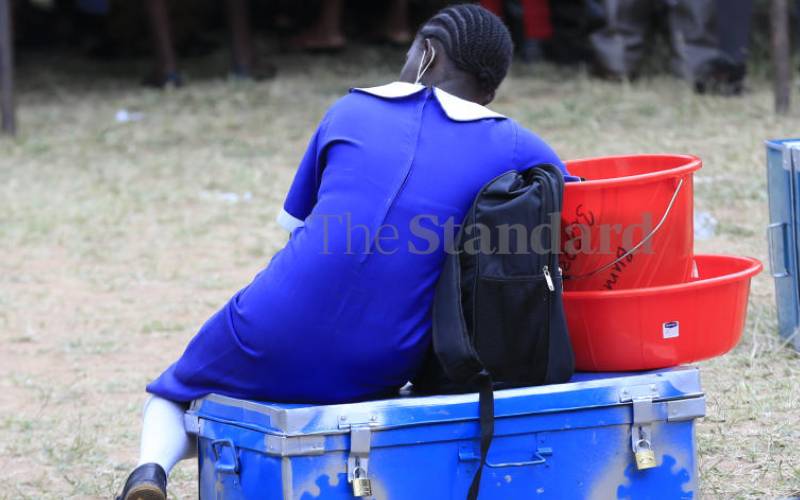×
The Standard e-Paper
Kenya’s Boldest Voice

A candidate waits to be served at S.A Kolanya Girls Secondary School, Busia, August 02, 2021. [Stafford Ondego, Standard]
This week is important for the education sector. It is the beginning of the calendar year for all the learners in our schools. Secondly, President Uhuru Kenyatta has co-hosted the Global Education Summit with the UK Prime Minister in London where commitments to funding access to quality education were made.